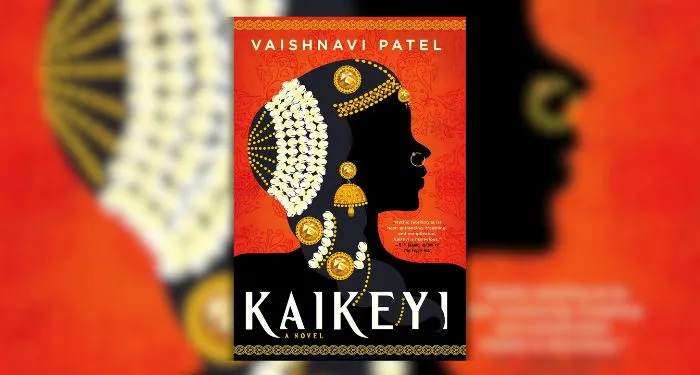My daughter Daria and I first encountered Antony Shugaar’s translation of Gianni Rodari’s Telephone Tales several years ago, peering out at us from the shelves of McNally Jackson’s downtown Brooklyn location. Rodari: a self-evidently Italian name I nonetheless found myself pronouncing with a Russian accent, clipping my vowels and trilling my r’s. I couldn’t remember reading him as a child in the USSR, or watching the popular Soviet cartoon adaptation of his beloved 1951 novel The Adventures of Cipollino—all I had to go on was the hazy impression of long-ago familiarity. (In 1992, the year after my family immigrated to the US, the Russian postal service released a stamp featuring Cipollino’s cheerful, oniony face, with his aggrieved antagonist, Cavalier Tomato, snarling in the background.)
We started reading Telephone Tales on the subway ride home. Like that of The Thousand and One Nights, the premise of Telephone Tales is almost pretextual in its simplicity. Signor Bianchi is “an accountant who worked as a traveling salesman, and six days out of every seven, he crisscrossed all of Italy—east, west, south, north, and central—selling pharmaceuticals.” (It should be said that there’s nothing simple or pretextual about the way Rodari fleetly sketches this downward mobility arc.) Signora Bianchi has already recounted to their little daughter “all the stories she knew, most of them three times already,” so the accountant is on the hook to deliver the storytelling goods, lest loneliness and longing begin to creep in while he’s away. The phone calls, however, must be kept brief. (“Only occasionally, if he’d wrapped up some very good sales, could he afford a few extra long-distance ‘clicks.’”) Signor Bianchi and his creator make up for the perennially ticking clock with high concentrations of linguistic (and literal) flights of fancy: a rainstorm of Jordan almonds, a runaway nose, a merry-go-round that dispatches its riders to space and back, a traffic light that has for some reason turned blue, a mouse that escapes the confines of the funny pages only to find its comic-strip phrasing (“Sploom, bang, gulp!”; “Spliiit, grong, ziziziiir”) incomprehensible to one and all.
Two stops into our ride, somewhere under Clinton Hill, Daria and I were smitten. Here was a sneaky and hilarious book for children but not only for children, one that immediately called to mind the great twentieth-century chroniclers of the absurd—especially Daniil Kharms, whose old women tumbling out of windows feel of a piece with Rodari’s boy who loses all his limbs while on a walkabout. One can return frequently to Telephone Tales without hesitation, and one should. These are, as Daria put it, “interesting stories that feel like they haven’t happened when you read them again.”
The spontaneous quality of the tales in Telephone Tales—the recurring impression that they’ve emerged anew, forged into being by accident or circumstance as opposed to methodical predetermination—does seem east, west, south, north, and central to the Rodarian project. He says so himself, in his pedagogical masterpiece The Grammar of Fantasy, in Jack Zipes’s translation:
A word, thrown by chance into the mind, produces waves on the surface and in the depths. It provokes an infinite series of chain reactions, and as it falls, it evokes sounds and images, analogies and recollections, meanings and dreams in a movement that touches upon experience and memory, the imagination and the unconscious. This movement is complicated by the fact that the mind itself does not react passively, but intervenes continuously to accept and reject these representations, to connect and censor them, construct and destroy them.
Published in 1973, The Grammar of Fantasy emerged from a series of meetings and conversations Rodari had held the previous year with elementary and middle school teachers in Reggio Emilia. The city was an epicenter of pioneering early-childhood education at the time, and “I was being given the opportunity,” he writes, “to have long, detailed discussions about the function of the imagination and about techniques used for stimulating it.” By this point Rodari had been teaching children for over three decades and writing for them for over two. Born in 1920, he was a precocious, self-directed student with an anti-authoritarian disposition. He read Marx while still in high school and resisted the fascists as well as the lower-key oppressions of the Catholic University of Milan, from which he dropped out in relatively short order. Rodari avoided the draft because of poor health and taught in schools in northern Italy throughout the war, joining the Resistance and the Communist Party in 1944. The following year he started a Communist journal called L’Ordine Nuovo (The New Order), and in 1947 he moved to Milan and began writing for L’Unità (Unity), adding children’s poems and stories to his repertoire.
The rest is not exactly history (or not yet, on these shores—if you’re an aspiring English-language Rodari biographer and you’re reading this, you have one assured preorder), but after this point Rodari was, above all else, a writer for children. Throughout the 1950s his reputation grew among Italy’s substantial left-wing reader base, and in the 1960s, as he was published more widely, he became a household name even in households that found Coca-Cola sweeter than Marx. A number of Rodari’s major books date from this period, including Telephone Tales, as does his more active engagement, or reengagement, with pedagogy. In frequent touch with teachers and children and persistently attentive to the kinds of inspiration the latter actually needed—rather than what was foisted on them by any number of untrustworthy authority figures—Rodari developed a methodology that celebrated compassion and encouragement, language and imagination. “In his view,” as Joan Acocella put it in her lovely 2020 tribute to Telephone Tales, “children learned not by having something jammed into their brains—the multiplication tables, the sonnets of Petrarch—but by responding, almost involuntarily, to a sight, an idea, or often just a word, absorbing it, moving other mental contents around to make room for it, and thereby creating something new.”
The “word, thrown by chance into the mind” is the ultimate subject of The Grammar of Fantasy—the word as it’s deployed, conjured, subverted, and enjoyed by children. It is, indeed, the ultimate unit of measurement for Rodari’s work as a whole, which, like that of Kharms and the Dadaists and Futurists, insists on verbal novelty as a source of energy and pleasure. Whether they’re tightly packed like Telephone Tales or unfold gradually on a grand scale like The Adventures of Cipollino, Rodari’s stories revel in the new and the surprising. And they stay that way, retaining their capacity to “feel like they haven’t happened when you read them again” thanks to the labor of translators, illustrators, animators, voice actors, postage stamp artists, and everyone who has ever read these books aloud to their children, reinventing them (the books, but perhaps also the children) in the process.
*
Thrilling new forms of reinvention are now accessible to one and all thanks to Enchanted Lion—the heroic Brooklyn-based children’s publisher of Telephone Tales, The Grammar of Fantasy, and much else from Rodari and numerous other literary and artistic visionaries—which has, at long last, made The Adventures of Cipollino available in English. And what English! As with his work on Telephone Tales, Shugaar’s translation is crisp and delirious in equal proportion—every word is fun to read aloud. Dasha Tolstikova’s beautiful watercolor artwork, meanwhile, gives all the shenanigans a wonderfully rich and earthy texture.
A book whose influence on Italian literature makes it hard to analogize (Huck Finn? Not really a children’s book. But then again…), The Adventures of Cipollino shares Telephone Tales’ commitment to absurdity, though its most indelible images fall on the world-wearier end of the wackiness spectrum. Viscount Maraschino, a noble cherry, taking off his spectacles in order to not see the signs he knows are there, the ones instructing him not to touch the flowers or put his hands in the pond; a train conductor who gestures out the window and offers practiced descriptions of a landscape no one can make out due to heavy fog; Cipollino in his prison cell, ripping his uniform into strips for use as stationery; taxes on thunderstorms and morning dew: these are sublime little moments that mystify and insinuate themselves into the mind and refuse to fully settle, like stray bits of overheard dialogue or snapshots discolored by the passage of time.
Constitutionally unable to overstay his welcome, Rodari stuffs these scenes and many others into a picaresque that’s never less than full of incident. Like Don Quixote, The Adventures of Cipollino wanders freely, its accumulation of characters and plots a happy counter to the unambiguously rough times it depicts. Every once in a while, Rodari opens his chapters with a dose of direct address, as if the author himself wants to get in on the fun of dislocation: “Well, the time has come for us to pay a visit to the castle of the contessas of Cherrytree”; “Just a moment: who is Mr. Babycarrot? We’ve heard nothing about this individual yet”; “Let’s take a step back, as the saying goes, otherwise we’ll never be able to understand what happened in the grotto.”
What did happen in the grotto? It’s kind of tough to summarize, as is the novel as a whole. Put most plainly, Cipollino is the story of a wrongful arrest and a property dispute and everything that follows, with two distinct beginnings and a cavalcade of endings. Cipollino is an onion whose father is apprehended for accidentally stepping on Prince Lemon’s foot and sent to prison. Squire Zucchini finally finishes building himself a home, only for Cavalier Tomato to declare that the land it’s on belongs to the contessas. Cipollino goes on a journey, aggravates the authorities, organizes a band of outsiders, hides a house next to the trunk of an oak tree, gets arrested himself, tunnels to freedom…and then there’s still half a book to go.
Cipollino’s characters are mostly drawn from the produce section—parsley, string beans, strawberries—though a few animals pop up (most notably a limping spider and a community of moles), as well as an occasional superfluous human. The masses are mostly vegetables (Lucius Leek, Butterbean, Radish) and the nobility are mostly fruit (Baron Sweet-Orange, Duke Tangerine), but these aren’t crucial distinctions. What differentiates these characters is their relative class position: the nobility rewrite laws and slash norms and mete out violence without compunction, ratcheting up their oppression of the townsfolk and the farmers as the book goes on. Rodari conjures this schematic (but true to life!) arrangement of forces without any didacticism or sanctimony. (Compared to Orwell’s anticommunist animal tale, The Adventures of Cipollino is downright avant-garde.) What’s important is that no one deserving of embarrassment—the pretentious, the pompous, the powerful—is spared that fate.
And yet Rodari is careful not to rush to judgment, instead allowing his characters plenty of space to orchestrate their own humiliations. Take the comically self-involved Mr. Babycarrot, who “never goes anywhere without a dozen or so spyglasses, telescopes, and binoculars, a hundred or so compasses, dozens of cameras, a microscope, a butterfly net, and a small bag of salt.” An investigator who believes that his brain and his gear can reveal mysteries no one else can crack, he arrives at Cherrytree Castle certain that it’ll take him no time to locate Cipollino’s friends, who have escaped from under Cavalier Tomato’s pedicel. When Maraschino subsequently discovers Mr. Babycarrot and his dog Bloodhound in the castle “lying flat on the ground, consulting their compass and arguing excitedly,” he naturally wonders what has brought them quite so low. “Anyone is capable of finding their bed with the naked eye,” Mr. Babycarrot responds with proud bluster. “But an investigator must operate scientifically.” Shortly thereafter the investigator’s head is banged, the dog’s tail is reduced to a stump, and a mirror is shattered into a thousand pieces. Mystery wholly unsolved, lesson emphatically not learned.
*
Cipollino has gags galore, and a number of all-time great satirical flourishes. At one point, a roomful of courtly sycophants tries to outdo one another in agreeing with the prince that the weather outside is indeed frightful: “‘What a horrible downpour! Just look at how the rain sheets sideways in the wind!’ said Lady the Second, admiring a beam of sunshine shafting down from a cloud to bounce off the surface of the little goldfish pond.”
But like De Sica’s Miracle in Milan and Rossellini’s The Taking of Power by Louis XIV—two rigorously observant but wildly inventive films I thought of more than once as Daria and I first read this novel—Rodari’s satire is lived-in and a little mournful, unconcerned with either pure escapism or dogmatic allegory. Squire Zucchini’s house “wasn’t even a house, but a sort of kennel that would have been barely big enough for a dachshund.” When this tiny house is ferried to the woods for safekeeping, its temporary caretaker Squire Blueberry starts to worry: “Now that I have such a large house, he thought to himself, someone will surely burglarize it.” In lieu of the starchy recreations of times past and strenuous efforts at fantasy that often bedevil children’s literature, Cipollino’s setting is a low-key not-quite-present that helps the reader see their own present anew. (It’s thrilling to see Rodari refer to Viktor Shklovsky in The Grammar of Fantasy, since Cipollino might as well be subtitled My First Defamiliarization.)
It is impossible not to extrapolate freely from Cipollino’s dense materiality, not to transpose our own urgent concerns onto its sly inventions. That we’re mostly dealing with fruits and vegetables shouldn’t discourage all manner of generative projection. “Send me the trees!” commands Baron Sweet-Orange after having worked his way through the “eggs, chickens, turkeys, herds of cattle, flocks of sheep, droves of pigs, heaps of fruit, pails of milk and cream, crates of dairy products.” For a children’s novel, The Adventures of Cipollino has a lot to say about regressive taxation, land expropriation by elites, and the bottomlessness of the carceral state—both its growing capacity for cruelty and its capacity for ever greater capacity. Some readers will draw direct connections, while others will uncover a more universal set of truths in Rodari’s vision of ruling-class heedlessness and rapaciousness. Or both! I found myself responding with particular intensity to the shifty lawyer Squire Peapod, who reminded me of the constitutional law professors who make their names defending indefensible Supreme Court decisions, but also of various categories of people whose unwillingness to take a stand coalesces, over time, into their defining characteristic. I was riled up by Squire Peapod, and grateful to Rodari for riling me up. I only wish I could remember if, as a child, I’d been similarly affected.
“You will study one subject, and one subject only: scoundrels,” Cipollino’s father, Papa Cipollone, instructs him—an area of inquiry that proves essential to our hero’s triumph. The Adventures of Cipollino ends with liberation: emotional, mental, pedagogical, societal. Against all odds, Cipollino and his comrades’ insurgent ingenuity wins out over the petty corruptions and caprices of overripe oranges, steamed tomatoes, and bitter lemons (the latter of whom ends up stuck headfirst in a dunghill). In the book’s most remarkable scene, Cipollino and his fellow inmates embark on their weekly death march around the prison yard until—but how could it be?—they start to disappear one by one. Their prison guard, a baboon lemon, “looked up at the sky to see if some prisoner or other was fluttering into the clouds, and just at that moment, another lifer leapt down into the tunnel and vanished.” (Another, more felicitous kind of bottomlessness.)
As in Platonov or Babel or Kafka, the flight of fancy is inevitably entangled with the punishments of life on the ground. “Prisons are built to hold people who rob and kill,” Papa Cipollone tells Cipollino, “but ever since Prince Lemon was put in charge, people who rob and kill have been invited to join his court, and only good citizens are sent to prison.” Here, at the very beginning of the novel, is Rodari’s ultimate subversion, directed equally at children’s literature and specious political moralizing: leave the Manichean thinking to the grownups—kids know better.






















 English (US) ·
English (US) ·